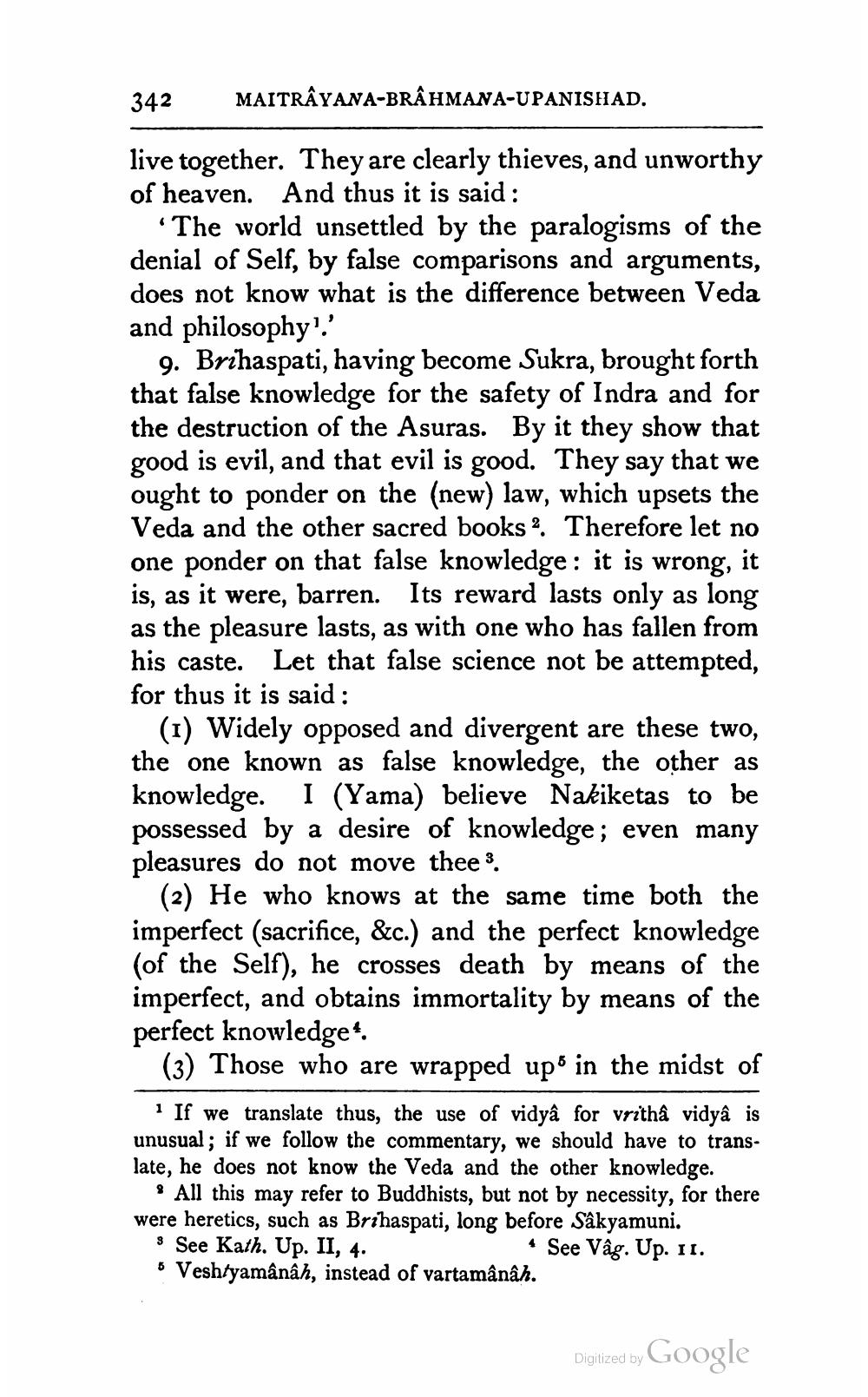________________
342
MAITRAYANA-BRÂHMANA-UPANISHAD.
live together. They are clearly thieves, and unworthy of heaven. And thus it is said:
'The world unsettled by the paralogisms of the denial of Self, by false comparisons and arguments, does not know what is the difference between Veda and philosophy'.'
9. Brihaspati, having become Sukra, brought forth that false knowledge for the safety of Indra and for the destruction of the Asuras. By it they show that good is evil, and that evil is good. They say that we ought to ponder on the (new) law, which upsets the Veda and the other sacred books 2. Therefore let no one ponder on that false knowledge: it is wrong, it is, as it were, barren. Its reward lasts only as long as the pleasure lasts, as with one who has fallen from his caste. Let that false science not be attempted, for thus it is said:
(1) Widely opposed and divergent are these two, the one known as false knowledge, the other as knowledge. I (Yama) believe Nakiketas to be possessed by a desire of knowledge; even many pleasures do not move thee 3.
(2) He who knows at the same time both the imperfect (sacrifice, &c.) and the perfect knowledge (of the Self), he crosses death by means of the imperfect, and obtains immortality by means of the perfect knowledge1.
(3) Those who are wrapped up in the midst of
1 If we translate thus, the use of vidyâ for vritha vidyâ is unusual; if we follow the commentary, we should have to translate, he does not know the Veda and the other knowledge.
All this may refer to Buddhists, but not by necessity, for there were heretics, such as Brihaspati, long before Sâkyamuni. See Vâg. Up. 11.
3 See Kath. Up. II, 4.
5 Vesh/yamânâh, instead of vartamânâh.
Digitized by
Google




